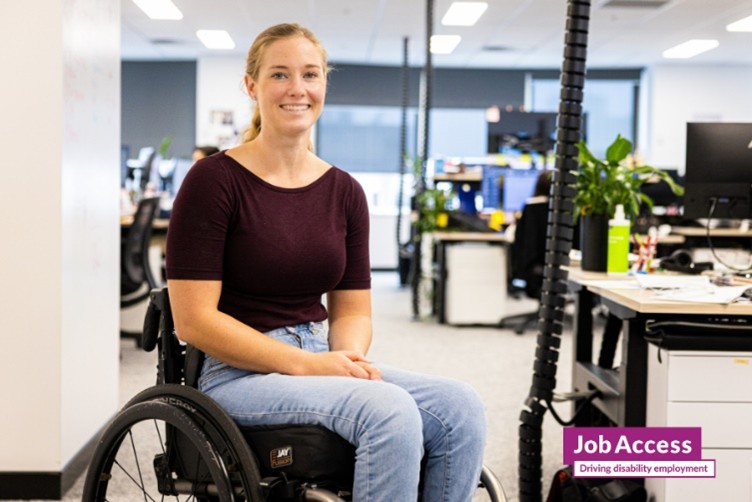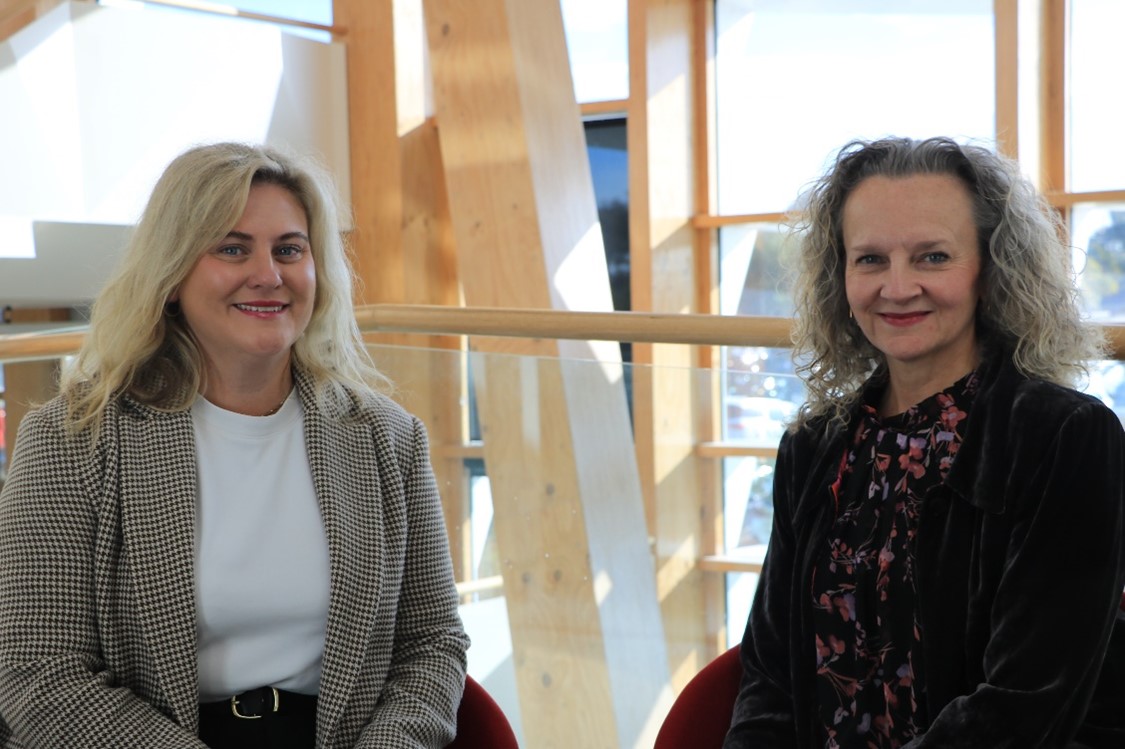Person in a high-vis outside, unloading parcels with a van behind them.
Hiring people with disability is good for your business. It helps you:
- Access new skills and talent
- Build a stronger team culture
- Increase staff retention
- Show your commitment to diversity and fairness.
Many employers want to be more inclusive but are unsure where to start. That’s where JobAccess comes in. We provide free expert advice and support to help you recruit and retain people with disability.
Here’s why hiring people with disability can help your business, and how JobAccess can assist you.
1. Access a wider pool of talent
One in five Australians has a disability, but only half of working-aged Australians with a disability have a job. This means there is a large pool of skilled and capable candidates who could bring new perspectives to your business.
Did you know? Employees with disability are:
- 90 per cent as productive as other workers
- 98 per cent have average or superior safety records
- 86 per cent have average or superior attendance records
- 19 times more likely to be satisfied in their job
- 4 times more likely to stay in their role.
JobAccess can help you attract and hire people with disability. The National Disability Recruitment Coordinator (NDRC) program provides free, tailored recruitment support.
Research shows that after completing a 12-month NDRC partnership:
- 94% of employers reported the NDRC provided appropriate information and support
- 87% reported a more positive attitude towards hiring people with disability
- 83% reported an increase in confidence when hiring and retaining candidates with disability.
By partnering with JobAccess, you can access the support you need to recruit candidates with confidence.
Learn more about the NDRC.
2. Improve workplace culture and innovation
Inclusive workplaces are more effective and innovative. Research shows workplaces with disability inclusion are:
- 10 times more likely to be highly effective
- 9 times more likely to innovate
- 5 times more likely to give excellent customer service.
Hiring people with disability encourages teams to approach problems differently and discover new solutions. We’re here to support you with free advice on disability awareness, inclusive job ad design and support for your team today.
Learn how JobAccess supports inclusive workplaces.
3. Increase staff retention and loyalty
Employees who feel supported are more likely to stay. Hiring people with disability and making workplace adjustments can reduce hiring costs and boost retention.
The Employment Assistance Fund (EAF) can support with workplace adjustments, including:
- Assistive technology
- Auslan interpreting
- Training
- and more.
Find out more about the EAF.
You may also qualify for subsidised wages for the first 26 weeks of a placement when hiring through Inclusive Employment Australia. The subsidy can cover up to $10,000 in wages, depending on the hours of worked being offered. Learn more about subsidised wages.
4. Show leadership and social responsibility
Hiring people with disability shows your organisation values diversity and fairness. This can improve your reputation with customers, suppliers, and the wider community.
Nearly 60% of people said they would prefer to work for an employer who asks about workplace adjustments during recruitment. JobAccess guides managers on:
- Inclusive leadership
- Communication
- Supporting employees with disability.
5. Meet legal requirements
Employers in Australia must follow the Fair Work Act and the Disability Discrimination Act. Hiring people with disability and providing reasonable adjustments is not just ethical, it is the law.
At JobAccess, we can help you understand your obligations. We can also help you create fair, inclusive, and productive policies.
Get started with JobAccess
We're here to help. We offer a range of supports to help you hire and support people with disability. The best part? Our services are free.
Visit JobAccess or call 1800 464 800 to get started.
Creating a more inclusive workforce happens one step at a time.



